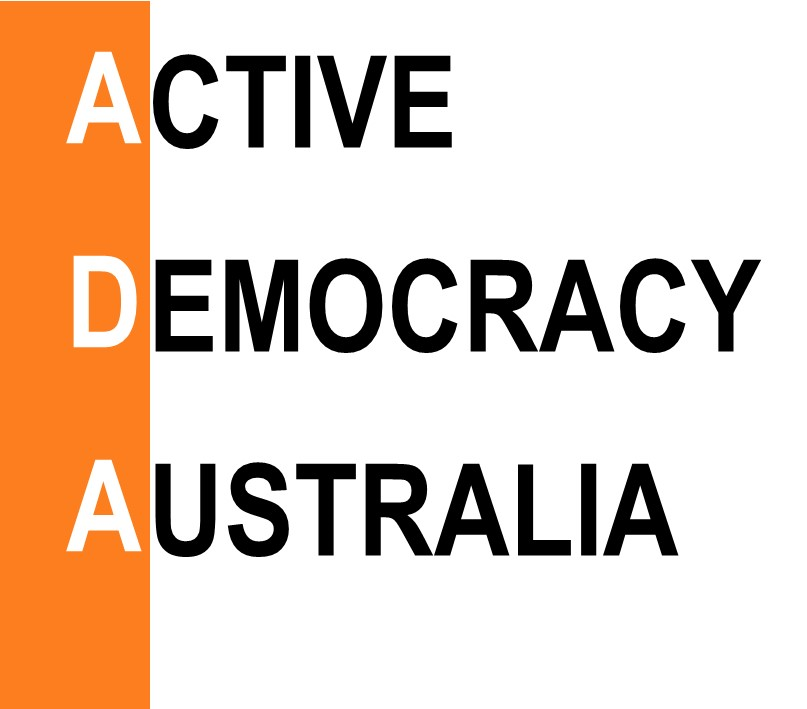Ten reasons to start an electorate action group in your electorate
If you’re wondering if your electorate needs an electorate action group, check out this list of reasons why we think it does.
- What governments do makes a big difference to our lives. Governments can enhance our lives. Think Medicare, public education, welfare safety nets, public infrastructure, anti-discrimination laws and environmental regulations. But often governments fail to act, or they introduce bad policy. We need to be watching what they do and taking action when we believe they are not acting in our best interests, and we need our MPs to help us with this.
- Lots of things can go wrong in politics. Lobbyists and party donors can have huge influence over government policy. Governments can use pork barrelling – favouring some seats with facilities and grants – to win or hold those seats. They can hide or deny their mistakes or the policies they haven’t implemented. They can ignore good, evidence-based policy, to appease special interests or party factions, or under the sway of a political ideology. MPs may not communicate well with their constituents. Voters need to be alert and call all these things out.
- Collective action works. The history of political change shows us that when people unite and take action, they can be a powerful force. Together, within our electorates, we can engage voters in deciding the issues that most concern us. As a community, we can educate ourselves about policies, about the needs of the electorate and the candidates for election, so we’re better able to argue for the best policies, to ensure that local needs are being addressed, and to choose the best candidate to represent us as our MP. While the powerful may try to control politics with their money, history has shown that people acting together can have power through their numbers.
- Representing an electorate is a big job. Even for a good MP, representing about 110,000 voters and 170,000 people is a huge and complex undertaking. The MP needs to be across all policy areas and to understand the diverse needs of all these people. An organised electorate group can help the MP to do their job better by encouraging constituents to speak up, drawing together what they are saying and communicating this to our representative. And if the current MP is not up to the job then the group can help voters choose a better one.
- More direct communication between MPs and voters is needed. So much of what we think we know about politicians and parties comes from their political opponents or from often partisan media organisations. As voters, we need to be in more direct communication with our MPs – and other candidates – so that we understand them and their policies better, and they can understand us better.
- Existing political organisations are not enough. Political parties and organisations running specific issue campaigns have important roles to play in politics, but they are not enough. Party memberships have nosedived, and more and more decisions are made by party leaders, so parties and their decisions have become less democratic. And specific issue campaigns often fail to change government decisions, even when they have massive public support. There is a need for a new locus of political power – communities coming together to decide what matters to them, and how they wish to be represented on these matters by the MPs they elect.
- Opting out is not the answer. Many people are so alienated by what happens in politics that they don’t want any part of it. But that’s exactly what powerful people who use politics to further their own interests want us to do. To get better outcomes we need to be in on the action. We need to recognise and work with the good people in politics, and to have faith that through political action we can collectively make our lives better, based on the good things already achieved over our democracy’s history.
- MPs can be our advocates. Voters often feel frustrated that party MPs almost always vote with their party even if they personally think differently. But these MPs can still, on our behalf, argue and vote for changes to party policy within the parliamentary party room and other party forums. Parties often change policies, and the views of voters can play a big part in this. If enough electorate groups persuade enough MPs to support a particular policy change, then it can happen.
- Electorate action groups should not just reinforce partisan politics. If these groups only exist in seats held by one side of politics, then they will come to be seen as a movement opposed to that side of politics. All parties need help to be their best (as do independents). A country is better served if parties across the spectrum support policies that are evidence-based and in the broad public interest (as politics in northern Europe demonstrates).
- The more electorate groups there are, the more powerful the movement will be. Currently, parties don’t systematically consult voters in each electorate when they formulate their policies, or when they preselect candidates. They should, and it would be in their electoral interests to do so. But it will take a powerful campaign by electorate action groups, acting together and acting on behalf of voters in all their electorates, to bring this about. There are tried and tested ways of consulting voters on policies and preselections; we just need a new movement in democratic politics to help bring it about. Electorate action groups can be that movement.
